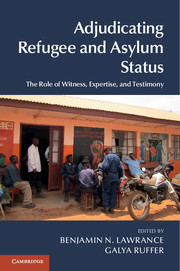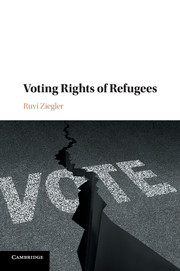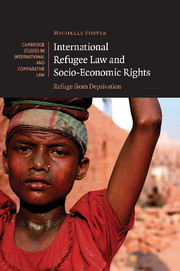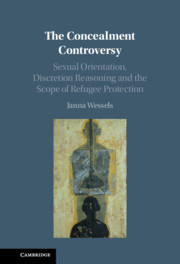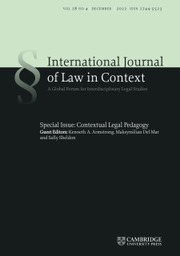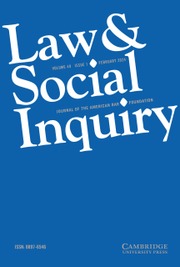Adjudicating Refugee and Asylum Status
In this book, an array of legal, biomedical, psychosocial, and social science scholars and practitioners offer the first comparative account of the increasing dependence on expertise in the asylum and refugee status determination process. This volume presents a comprehensive study of the relevance of experts, as mediators of culture, who are called upon to corroborate, substantiate credibility, and serve as translators in the face of confusing legal standards that require proof of new forms and reasons for persecution around the globe. The authors draw upon their interactions with expertise and the immigration process to provide insights into the evidentiary burdens on asylum seekers and the expanding role of expertise in the forms of country-conditions reports, biomedical and psychiatric evaluations, and the emerging field of forensic linguistic analysis in response to emerging forms of persecution, such as gender-based or sexuality-based persecution. This book is essential reading for both scholars interested in the production of knowledge and clinicians considering the role of experts as mediators of asylum claims.
- Features anecdotal narratives of real cases that make the book particularly useful for clinical instruction/adoption
- This is a guidebook by way of specific personal narratives of best practices in asylum and refugee status
- Establishes expert testimony as a site of critical study for the humanities and social sciences
Reviews & endorsements
"Adjudicating Refugee and Asylum Status is an excellent collection that explores how, in industrialized countries, the personal narratives of asylum seekers are scrutinized and in some instances replaced by an expanding array of expertise deployed to establish the credibility of asylum claims … The strength of this important collection lies in the range of professional perspectives that it reflects - often candid, self-critical, and modest in their struggles to establish truth, credibility, and state of mind. For the most part, this is not a story of heroes and villains, but one of collective dedication to an imperfect system and frustration at the limits of ensuring fair asylum procedures and outcomes."
Graeme Rogers, Refuge
"Adjudicating Refugee and Asylum Status: The Role of Witness, Expertise, and Testimony is a timely and promising title for anyone interested in the practicalities of assisting asylum seekers in court. The book provides an insightful, informative, and broad view of the complexities of asylum cases and the role experts play in helping the judiciary understand these cases … The strength of the book is the range of topics covered and the use of case studies to illustrate each point. The various authors make a good team, combining their disciplines to present information on both the necessity for expert evidence but also the problems that arise."
Julia Muraszkiewicz, International Journal of Refugee Law
"Benjamin N. Lawrance and Gayla Ruffer’s edited collection offers new spaces of inquiry and important insights into the processes and protocols of refugee status determination (RSD), critiquing the central role that social scientific and scientific expertise has come to occupy in asylum adjudication in the global North … In bringing together work by experts from an array of fields, the volume contributes significantly to the expanding literature on asylum seeking and RSD, which typically tends to be segregated by discipline."
Katherine Luongo, African Studies Review
Product details
February 2015Hardback
9781107069060
280 pages
229 × 152 × 18 mm
0.54kg
5 b/w illus.
Available
Table of Contents
- Part I. Sociocultural Inconsistency and the Contours of Expertise:
- 1. Reconstructing Babel: bridging cultural dissonance between asylum seekers and asylum adjudicators Bruce J. Einhorn and S. Megan Berthold
- 2. Recovering the sociological identity of asylum seekers: language analysis for determining national origin in the EU Noé Mahop Kam
- 3. Research and testimony in the 'rape capital of the world': experts and evidence in DRC asylum claims Galya B. Ruffer
- 4. Beyond expert witnessing: interdisciplinary practice in representing rape survivors in asylum cases Miriam Marton
- 5. Anthropological evidence and 'country-of-origin information' in British asylum courts Anthony Good
- Part II. Practices and Technologies for Medico-Psycho Expertise:
- 6. Expert as aid and impediment: navigating barriers to effective asylum representation Sabrineh Ardalan
- 7. Documenting torture sequelae: the Weill Cornell model for forensic evaluation, capacity building, and medical education Khatiya Chelidze, Nicole Sirotin, Margaret Fabiszak, Terri Edersheim, Alexandra Tatum, Taryn Clark, Luis Villegas, Patriss Wais Moradi and Joanne Ahola
- 8. Incredible until proven credible: mental-health-expert testimony and systemic and cultural challenges for asylum applicants Hawthorne Smith, Stuart L. Lustig and David Gangsei
- 9. Importing forensic biomedicine into asylum adjudication: genetic ancestry and isotope testing in the UK Richard Tutton, Christine Hauskeller and Steven Sturdy
- 10. 'Health tourism' or 'atrocious barbarism'?: Contextualizing migrant agency, expertise, and humanitarian medical practice Benjamin N. Lawrance.

